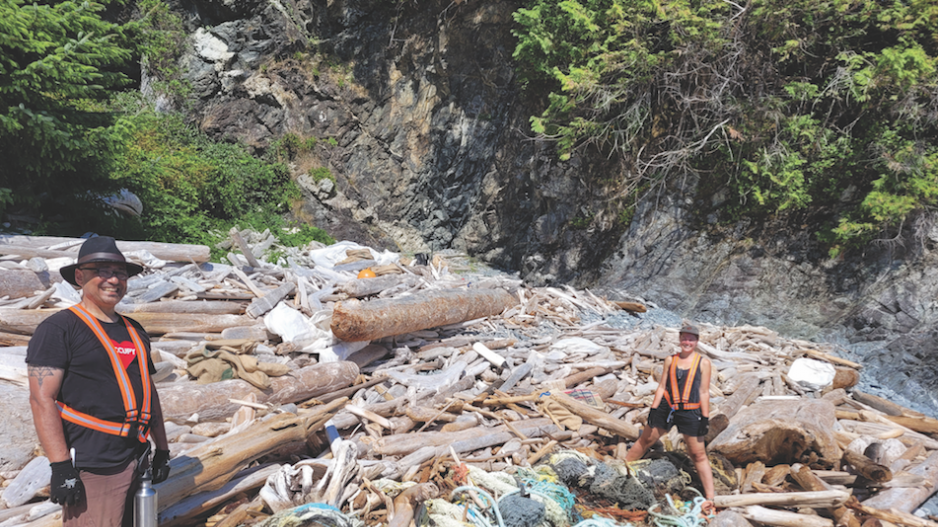This article was originally published in BIV Magazine's Philanthropy issue.
Long gone are the days where a company is judged solely for the quality of its products and services. And any damage caused by a business’s operations can no longer be swept under the rug with a goodwill gesture, donation or apology.
Today, companies not only have to consider the social and environmental impacts of their procurement, production and distribution processes, but they have to actively work to find ways to minimize, eliminate or restore any damage caused.
“Cutting cheques is cheap,” says Melissa Orozco, founder, CEO and chief impact strategist of Yulu Public Relations. “What you want to do is: You want to help address the problems, you want to get to the root issues that are holding these communities back and you want to find ways to lift those communities up.”
Corporate giving has developed into corporate social responsibility, and it is much more than merely a marketing strategy.
Orozco’s firm is a certified B Corp that specializes in developing strategies to help companies operate in more environmentally and socially conscious ways.
Despite her company’s name, she says she cringes when people call it “just public relations.” After all, being a socially and environmentally responsible company is more than a marketing campaign: It’s something that has to be at the core of a company’s strategy and woven into each aspect of its business.
“Commitment needs to come from the top,” Orozco says.
“If we are meeting with an organization and there’s pushback, there’s not buy in from the very top, or the CEO won’t make time for it, we will actually tell them: ‘Call us back when you’re ready to properly commit to this because it needs the respect and attention of your upper leadership. We can’t do without [them].’”
If organizations want to commit to being responsible corporate citizens, they need to consider the social and environmental impact of their business, including their carbon footprint, foreign and domestic labour conditions and sustainability.
Beyond limiting negative externalities, companies can also leverage their business and industry expertise to become a part of the solution.
The online audiobook and podcast company Audible, Inc. is one example. Rather than donating to Indigenous causes, the company thought about how it could leverage its audio platform for a greater social benefit.
Audible started its Indigenous Writers’ Circle program to mentor emerging First Nations, Inuit and Métis writers, and provide them with a platform and resources to help them get a licensing deal.
Dedicated efforts like this go far beyond the pocket book. Raquel DiPerna, who heads up the initiative for Audible, says the program leverages the company’s service, brand power and resources to help create a level playing field for Indigenous writers by giving them equitable access to writing opportunities.
Creating new, dedicated and socially conscious programs is one way corporations can give. Another is through corporate partnerships.
According to Kathryn Anderson, education coordinator of the non-profit Ocean Legacy Foundation, corporate giving has evolved into corporate partnerships, where businesses help charities expand by taking them in and giving them access not only to their cash, but their brand, reach and organizational expertise.
Telus Inc. did this by collaborating with Ocean Legacy Foundation to advance education on ocean plastic pollution.
The influx of money and resources was vital to the foundation and its work, allowing it to hire full-time staff and expand its program.
But Anderson says that was far from the only thing Telus brought to the table. The telecommunications giant’s broad reach has allowed Ocean Legacy Foundation to expand its education program and adapt it to different provincial and global jurisdictions.
Attaching the name of a multibillion-dollar, multinational company to the initiative helps elevate the foundation and its mission.
“[Telus is] able to help get the message out by putting their stamp on this curriculum,” says Anderson. “Telus is in 28 countries across the world. It’s nice to be able to partner with them and take advantage of their pull and their network.”
Corporate social responsibility – and what it means for philanthropy – has come a long way.
Now, Orozco says that people at least know the phrase “environmental, social, governance,” (ESG) as compared to five years ago. And she says companies have generally made the most progress on the environmental front.
But there is still a ways to go, and businesses are still trying to figure out the social and governance pillars, according to Orozco.
There are many ways for companies to start down this path. The gold standard, according to Orozco, is the United Nations Sustainable Development Goals, which include 17 objectives that range from zero hunger, to education, to sustainable cities.
No matter the industry or the operation, a business should be able to tie their philanthropy, community efforts or business model to one of those sustainable development goals.
But the desire has to be there. Integrating an ESG framework into the core of a business takes time, and is and should be about much more than philanthropy or positive public relations, Orozco says.
“We explain to our clients, ‘Be ready to not talk about this for six to 12 months because we implement it and demonstrate it internally before we start talking about it,’” she says. “Otherwise, it’s just PR.”
This article was originally published in BIV Magazine's Philanthropy issue under the headline ‘Not just PR.’ Check out BIV’s full digital magazine archive here.




